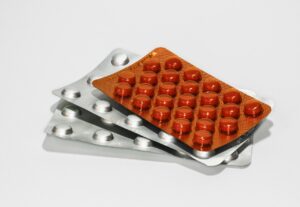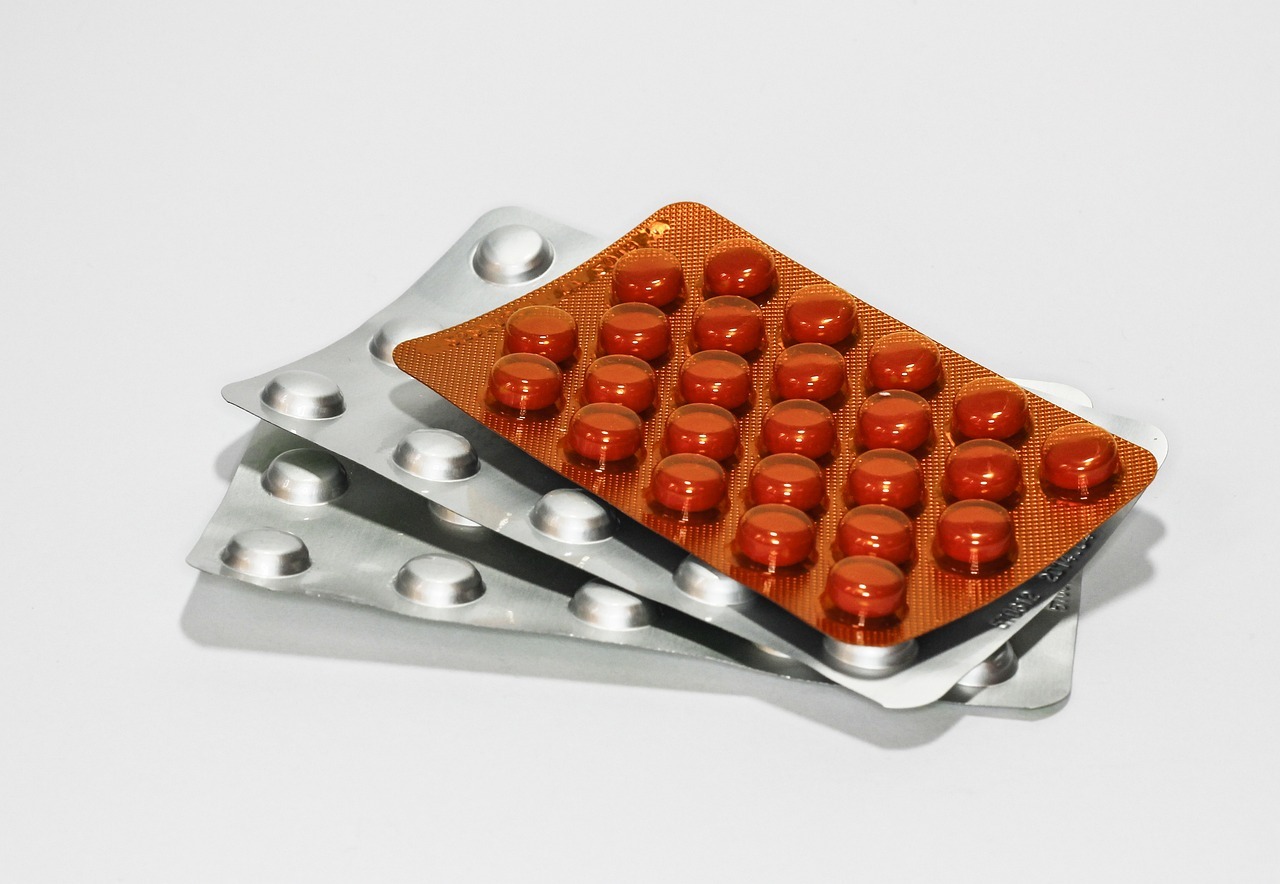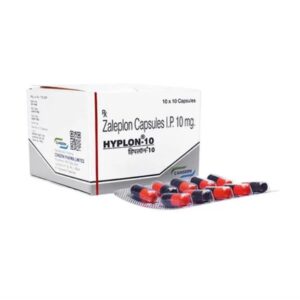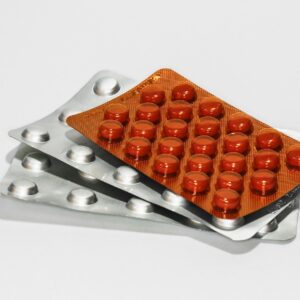Ambien, a widely prescribed brand name for the drug zolpidem, belongs to the sedative-hypnotic class of medications. Often used to address insomnia, Ambien 10 mg is a specific dosage strength that stands out for its effectiveness in promoting restful sleep. This article explores the pharmacological aspects, therapeutic uses, potential side effects, and considerations surrounding Ambien 10 mg, providing insights into its role in the quest for a good night’s sleep.
Pharmacological Insights:
1. Mechanism of Action:
- Selective Action on GABA-A Receptors: Zolpidem, the active ingredient in Ambien, exerts its effects by selectively targeting a subtype of gamma-aminobutyric acid (GABA) receptors in the brain. GABA is an inhibitory neurotransmitter, and the activation of GABA-A receptors contributes to the sedative and hypnotic effects of zolpidem.
2. Therapeutic Indications:
- Insomnia Management: Ambien 10 mg is primarily prescribed for the short-term management of insomnia. It helps individuals initiate sleep and maintain a restful sleep pattern.
- Sleep Onset Difficulty: The medication is particularly useful for those experiencing difficulty falling asleep, a common challenge in insomnia.

3. Dosage Specifics:
- Standard Dose for Adults: Ambien 10 mg is a standard dosage for adults, offering a balance between effectiveness and minimizing the potential for next-day impairment.
- Lower Doses for Certain Populations: Lower doses may be prescribed for specific populations, such as the elderly or those with hepatic impairment, to reduce the risk of side effects.
4. Onset of Action and Duration:
- Rapid Onset: Zolpidem is known for its rapid onset of action, making it effective in inducing sleep shortly after administration.
- Short Duration: The effects of Ambien 10 mg are relatively short-lived, aligning with its role in facilitating sleep onset rather than promoting prolonged sedation.
Therapeutic Landscape:
1. Insomnia Management:
- Sleep Onset Improvement: Ambien 10 mg plays a pivotal role in improving sleep onset, helping individuals transition from wakefulness to a restful sleep state.
- Enhanced Sleep Continuity: Beyond sleep onset, zolpidem contributes to enhanced sleep continuity, minimizing nocturnal awakenings and promoting a more consolidated sleep period.
2. Patient Compliance:
- Ease of Use: The oral formulation and straightforward dosing contribute to patient compliance, making Ambien 10 mg an accessible option for those struggling with insomnia.
- As-Needed Use: The medication is often prescribed for as-needed use, allowing flexibility in addressing transient bouts of insomnia.
3. Sleep Quality Improvement:
- Subjective Experience: Many individuals report an improvement in the quality of their sleep with Ambien 10 mg, describing a more restorative and refreshing sleep experience.
- Daytime Functioning: Enhanced sleep quality often translates to improved daytime functioning and an overall sense of well-being.
Potential Side Effects:
1. Common Side Effects:
- Daytime Drowsiness: Some individuals may experience daytime drowsiness, especially if the recommended sleep duration is insufficient.
- Dizziness: Dizziness is a common side effect, particularly when getting up from a lying or sitting position.
2. Serious Side Effects:
- Complex Sleep-Related Behaviors: In rare instances, individuals taking Ambien may engage in complex sleep-related behaviors, such as sleepwalking or driving while not fully awake.
- Memory Impairment: Memory impairment, including anterograde amnesia (difficulty forming new memories), may occur, especially if the individual does not get a full 7-8 hours of sleep after taking the medication.
3. Interaction with Other Substances:
- Drug Interactions: Zolpidem may interact with other medications, including central nervous system depressants. It is essential to inform healthcare providers about all medications and substances being used to avoid potential interactions.
Striking a Therapeutic Balance:
1. Short-Term vs. Long-Term Use:
- Short-Term Benefits: Ambien 10 mg is generally recommended for short-term use to address acute insomnia episodes. It is effective in providing immediate relief during transient periods of sleep difficulty.
- Caution with Long-Term Use: Long-term use is approached with caution due to the potential for tolerance, dependence, and the emergence of rebound insomnia upon discontinuation.
2. Individualized Treatment Plans:
- Consideration of Underlying Factors: Healthcare providers develop individualized treatment plans, considering underlying factors contributing to insomnia, the nature of sleep difficulties, and the individual’s overall health.
- Periodic Reevaluation: Regular assessments are conducted to evaluate the ongoing necessity of Ambien 10 mg and to identify any emerging side effects or changes in sleep patterns.
3. Sleep Hygiene Practices:
- Complementary Approaches: Combining Ambien 10 mg with sleep hygiene practices enhances overall effectiveness. Sleep hygiene includes practices such as maintaining a consistent sleep schedule, creating a conducive sleep environment, and limiting stimulant intake close to bedtime.
4. Gradual Tapering during Discontinuation:
- Tapering Protocols: When discontinuation becomes necessary, healthcare providers often recommend a gradual tapering schedule to minimize withdrawal symptoms.
- Transition to Non-Pharmacological Approaches: Transitioning to non-pharmacological approaches for managing insomnia, such as cognitive-behavioral therapy for insomnia (CBT-I), may be considered for long-term maintenance of healthy sleep patterns.
Conclusion:
Ambien 10 mg, with its active ingredient zolpidem, offers a valuable tool in the management of insomnia. Its rapid onset of action and short duration make it well-suited for addressing sleep onset difficulties, providing individuals with a pathway to restful sleep. However, the potential for side effects and the importance of cautious prescribing highlight the need for a balanced and individualized approach to its use.
As with any medication, the decision to prescribe Ambien 10 mg involves careful consideration of the individual’s specific circumstances, the nature of their sleep difficulties, and potential contributing factors. By navigating the realm of sedative-hypnotics with mindfulness and periodic reassessment, healthcare providers and individuals can work together to unlock the benefits of restful and restorative sleep.





Reviews
There are no reviews yet.